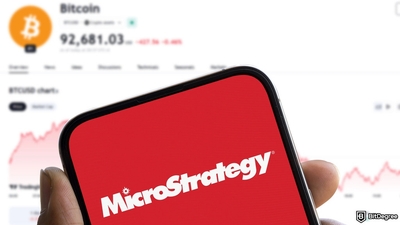Free Airdrop Season 7 is LIVE! Answer fun questions or do simple tasks to earn rewards from the $30K BitDegree prize pool. Participate Now ! 🔥
Bipartisan Win: US House Passes FIT21 Crypto Legislation
Key Takeaways
- The House passed the FIT21 Act to provide regulatory clarity for digital assets, with strong bipartisan support;
- If enacted, the FIT21 Act will define the regulatory roles of the SEC and CFTC over digital assets;
- The House is also reviewing the CBDC Anti-Surveillance State Act, aiming to prevent the Federal Reserve from issuing a digital dollar through intermediaries.
The United States House of Representatives has passed H.R.4763, or the Financial Innovation and Technology for the 21st Century (FIT21) Act, aimed at providing regulatory clarity for digital assets.
On May 22, the House demonstrated strong bipartisan support for the bill, passing it with a 279 to 136 vote that included 208 Republicans and 71 Democrats.
If the FIT21 Act is approved by the Senate and signed into law, it will delineate the regulatory responsibilities of the Securities and Exchange Commission (SEC) and the Commodity Futures Trading Commission (CFTC) regarding digital assets.

Did you know?
Subscribe - We publish new crypto explainer videos every week!
What is Polygon in Crypto? (Animated Explainer)


Representative Patrick McHenry highlighted the bill's importance before the vote, stating:
Unfortunately, our current regulatory framework is preventing digital assets’ innovation from reaching its full potential. The SEC and the CFTC are currently in a food fight for control of these asset classes.
In contrast, Representative Maxine Waters voiced strong opposition to the bill, arguing that the FIT21 Act would push cryptocurrencies into a "regulatory no man's land," potentially allowing traditional finance firms to evade SEC oversight. Waters warned:
<FIT21> is perhaps the worst, most harmful proposal I have seen in a long time. This bill would deregulate crypto and certain traditional securities to the extent that I and other experts have expressed serious concerns about this bill causing a potential market crash and recession.
SEC Chair Gary Gensler also criticized the bill, arguing it would weaken the SEC's ability to oversee crypto markets, consequently putting investors at risk.
The House is also set to consider H.R.5403, known as the Central Bank Digital Currency (CBDC) Anti-Surveillance State Act. This bill seeks to prohibit the Federal Reserve from issuing a digital dollar through intermediaries.
This legislative activity occurs during an election year, with regulatory decisions on crypto potentially influencing voter choices. Seemingly, Republican presidential candidate Donald Trump has recognized the importance of crypto in gaining support, as he shifted his stance from being a vocal critic of Bitcoin to now accepting campaign donations in crypto.
As the SEC's decision on a spot Ether exchange-traded fund looms, the FIT21 bill represents a significant moment for the future of crypto regulation in the US. The bill's passage in the House reflects a growing recognition of the need for clear and effective regulation to support innovation while protecting market stability.























